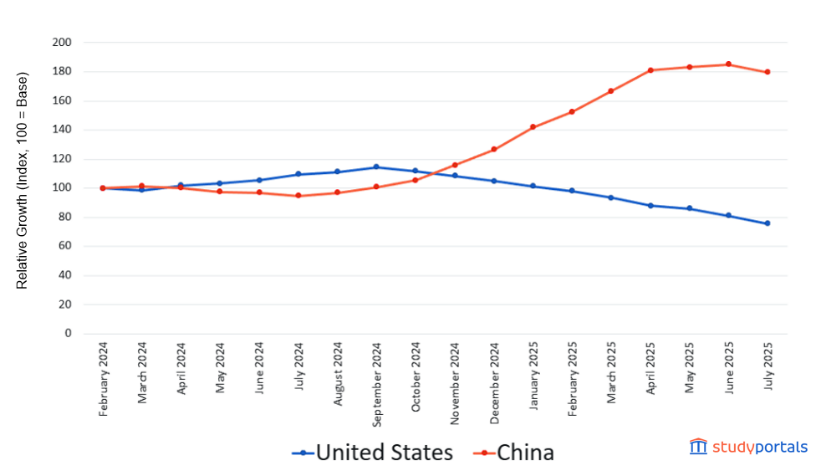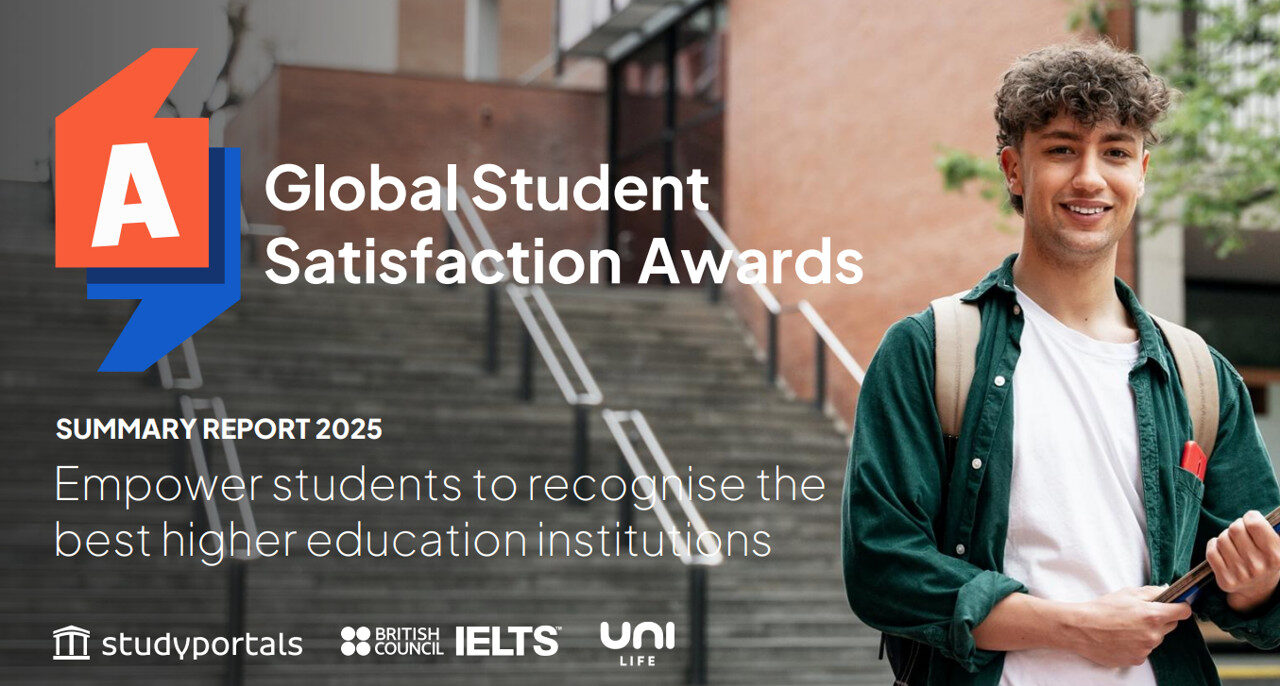China launches new STEM talent visa as US loses ground in global AI student demand
Studyportals data shows relative student interest in US AI degrees falls 25% while interest in China increases 88%
[Eindhoven, Netherlands- 28 August 2025] – China this month unveiled a new K visa to attract young global science and tech talent, reinforcing its 2035 ambition to surpass the US in technological leadership. The move comes as international student demand for US artificial intelligence degrees declines, while interest in China surges.
When comparing January to July 2025 to the same period in 2024, relative demand for Artificial Intelligence degrees (on-campus Bachelor’s and Master’s and PhDs) in the US on Studyportals dropped 25% year-over-year, while interest in AI degrees in China rose 88%. Market share refers to the percentage of all student interest in AI degrees globally that is captured by the US and China as destinations. The US’ share of global demand for AI degrees is shrinking, while China’s share of the total is growing.

The ‘Race on AI’ talent
Both Beijing and Washington are racing to secure technological leadership in the ‘Race on AI’. According to Harvey Nash “Digital Leadership Report 2025” Artificial intelligence has created the world’s biggest and fastest-developing tech skills shortage in over 15 years. This shortage has created a race for talent, with companies like Meta reportedly handing out $100m sign-on bonuses to win top talent.
For the future of AI, new graduates, both domestic and international, are a crucial source of advantage. In the US, international students dominate the talent pipeline. According to the National Foundation for American Policy (NFAP), international students make up 70% of all full-time graduate enrolments in AI-related fields
In fact, according to the Institute of International Education, over half of international students in the US are enrolled in STEM (Science, Engineering, Computer Science and Mathematics) subjects.
Moreover, NFAP research also shows that having more international students at a university results in more US students going into STEM fields. The study suggests that the institutions attracting more international students are devoting more resources to STEM.
AI innovation
Based on the National Foundation for American Policy research, immigrant-founded AI companies are major job creators for Americans. 42% of the top US AI startups had at least 1 founder who came to the US as an international student. Companies like Databricks (5,000 employees), Gong (1,200 employees), and AlphaSense (1,112 employees) were all founded by immigrants but employ thousands of American workers across technical, management, and support roles. Since 65% of top U.S. AI companies were founded or co-founded by immigrants, these entrepreneurs are actually expanding the American job market by creating entirely new companies and industries rather than taking jobs away from Americans.
These fields also have the highest ‘stay-rate’: Studyportals data shows that after Computer Science and IT degrees, 47% of international graduates stay in the US for their careers.
Edwin Rest, CEO of Studyportals says,
Nations that succeed in drawing the brightest minds and in creating an environment for innovative business to thrive, will not just advance their economies, they will command the future of technology, security, and influence. International students do not only bring revenue to local economies and soft power, they also fuel innovation, startups, and job creation.


